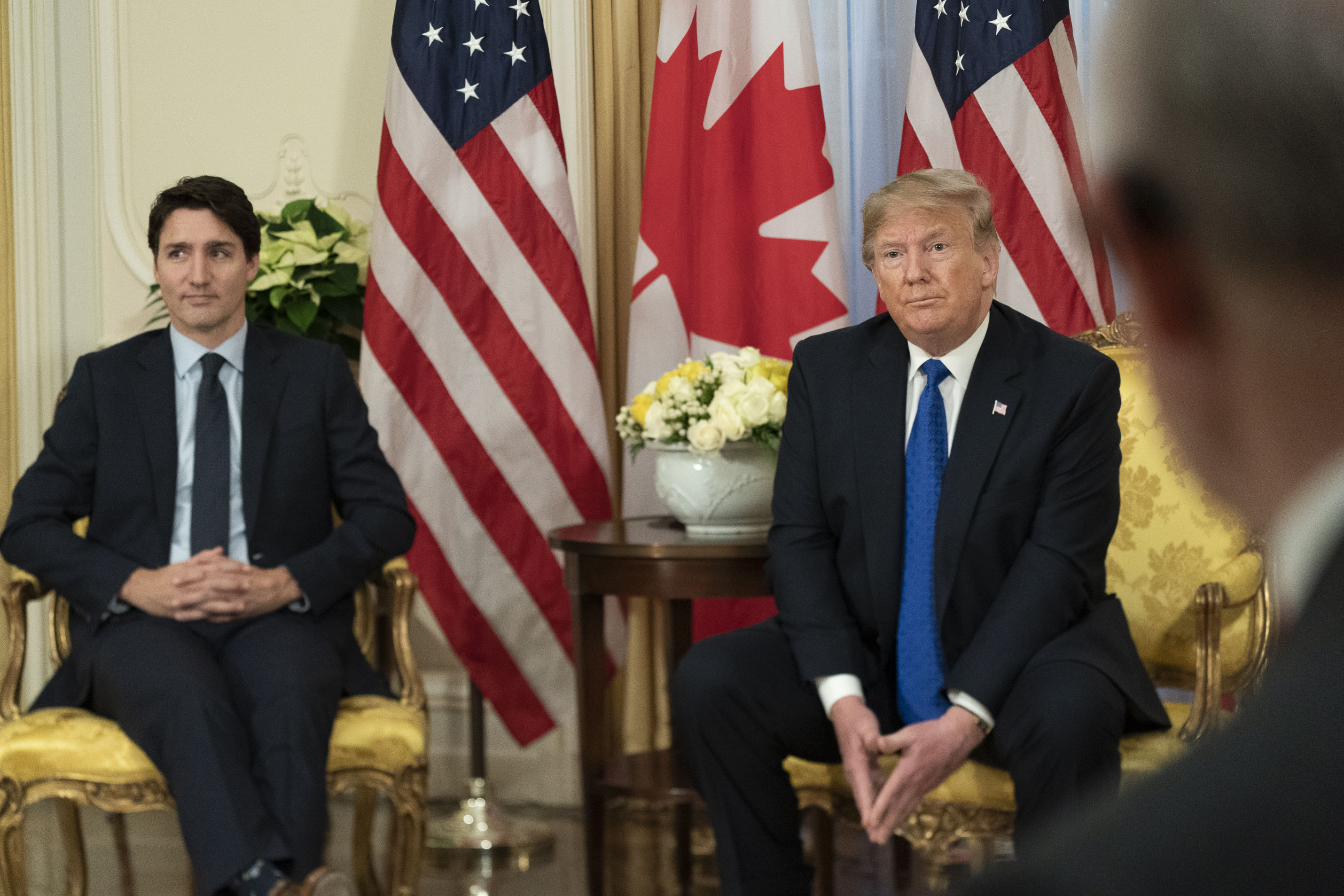CFIUS’s Excepted Foreign States Provision: U.S. Economic Security Policy Gets Longer Arms
The EFS provision offers a new lever through which the United States can incentivize (or compel) consistent standards on foreign investment reviews across like-minded nations.

Published by The Lawfare Institute
in Cooperation With

On Feb. 13, new U.S. Treasury Department regulations came into effect defining how the Committee on Foreign Investment in the United States (CFIUS) reviews foreign investment transactions. The regulations, which implemented the Foreign Investment Risk Review Modernization Act of 2018 (FIRRMA), include an “excepted foreign states” (EFS) provision that gives the United States new leverage in its efforts to compel other nations to adopt investment review regimes that it finds acceptable. Allies like Canada, which has had robust national security review authorities in place since 2009, will also wonder whether that leverage may be used to compel broader economic and national security policy changes, and to control the outcomes of specific transactions.
You can see Lawfare coverage on the other changes FIRRMA made to CFIUS’s jurisdiction here and here.
The EFS provision offers a new lever through which the United States can incentivize (or compel) consistent standards on foreign investment reviews across like-minded nations. Investments originating from countries on the EFS list are excluded from the definition of covered investments—deals that would not result in control by a foreign person of a U.S. business but over which CFIUS may nevertheless exercise jurisdiction. EFS designation acts as a preemptive stamp of approval, one that will probably privilege investors from designated countries, who will face a lightened regulatory burden and smaller likelihood of CFIUS intervention in their deals.
Included on this list, for now, are Canada, the United Kingdom and Australia. As of Feb. 13, 2022, however, EFS designation will turn on whether CFIUS has determined that a country has “established and is effectively utilizing a robust process to analyze foreign investments for national security risks and to facilitate coordination with the United States on matters relating to investment security.” The factors CFIUS suggests that it may take into account in making this determination reflect an expectation that partner countries have sufficient legal authorities in place. Yet the nonbinding nature of the guidance, along with the fact that the committee may take into account “such other factors as [it] may deem to be appropriate” suggests that there will be a good deal of discretion in the EFS designation process.
Since 2009, Canada has had a foreign investment review regime that enables the government to block, unwind or mitigate investments deemed to be injurious to national security, under the Investment Canada Act (ICA). The Canadian government’s jurisdiction in this respect is sweeping. For example, while CFIUS was granted the ability to intervene in noncontrolling investment transactions only recently by dint of the changes brought about by FIRRMA, the Canadian government has had that authority since national security provisions were first added to the ICA in 2009.
The Canadian government has not been shy about exercising its national security authorities under the ICA. Between 2010 and 2019, it blocked four transactions, ordered divestiture in seven more and imposed mitigating conditions on an additional four investments. By way of comparison, in the same period, five presidential decisions were issued pursuant to CFIUS’s authorities.
The United States and its allies are already seeking to coordinate their approaches on foreign investment reviews, even if much of the coordination probably takes place behind closed doors between the respective security and intelligence agencies of the countries involved.
Despite those efforts, however, the United States has not always found itself on the same page as like minded-nations when it comes to determining which (mainly Chinese) investments warrant concern. The Trump administration’s high-profile campaign against Huawei, the Chinese telecommunications giant, has seemingly produced (or coincided with) decisions by allies to restrict the firm’s involvement in their telecommunications networks. Yet not all have hewn as closely or immediately to the U.S. standard as the administration might have wished. The United Kingdom initially sought to allow for limited participation by Huawei in its networks, although it later reversed that position, while Canada has avoided making a formal statement on the matter altogether. Although Canadian telecoms now seem to see which way the wind is blowing, in 2018, concerns that Canada might allow Huawei into its 5G networks prompted Sens. Marco Rubio and Mark Warner, as acting chairman and vice chairman of the Senate Select Intelligence Committee, to publicly urge Prime Minister Justin Trudeau to block Huawei’s participation in Canada’s 5G development.
The public effort by the two senators to shape Canada’s decision on Huawei was not the first U.S. rebuke of Canada’s investment review activities. A year earlier, a bid by a Shenzhen-based firm to purchase Norsat International Inc., a Canadian satellite technology company, attracted criticism from the United States when the Canadian government did not intervene under the auspices of the ICA. At the time, House Armed Services Committee Chairman Mac Thornberry cautioned that China was “exploiting the seams” of Canada’s review regime. Committee member Rep. Walter Jones lamented that “[t]he United States cannot stop Canada from allowing the Chinese takeover of Norsat” and called for the U.S. military to review its dealings with the firm. The Trudeau government, for its part, was clear that the deal had been reviewed by Canada’s security and intelligence community as provided for under the ICA—and that no unresolved concerns had been identified.
The recent CFIUS order on TikTok and the U.S. government’s broader effort to build a fortress around the data of U.S. citizens raise further questions about the degree of coordination the United States will seek with its allies moving forward. The moves reflect a concerted effort within the U.S. government to segregate U.S. data from networks, apps, cloud infrastructure and even undersea cabling that could be compromised by the Chinese government. The campaign, including a 2018 deal in which CFIUS convinced T-Mobile and Sprint to shun Huawei in their overseas networks, underscores the degree to which the U.S. government sees protecting U.S. data as a global effort. The EFS provision may prove to be a crucial tool for the U.S. government in this respect.
The discretionary nature of EFS designations creates particular challenges for Canada, which has a vested interest in ensuring that its outbound investment to the United States continues to flow unimpeded; it was the second largest source of foreign direct investment in the United States in 2019, and the flow of investment from Canada in that year alone exceeded $36 billion. Any increased friction for those capital flows could prove deleterious to Canadian investors, including major institutional players that invest heavily in U.S. equities and whose investments guarantee public-sector pensions. The additional CFIUS scrutiny that comes with the loss of EFS designation would lead to more uncertainty and force these investors to grapple with the potential that their noncontrolling investments could face extended review, or even intervention.
Although it hasn’t said as much, the United States likely intends for the EFS provision to aid it in corralling its allies into presenting a united front against the risks posed by foreign investment. And for as long as the United States remains a singularly attractive destination in global capital markets, like-minded nations will have a strong incentive to seek EFS designation.
However, the ample discretion given to CFIUS in making its EFS determinations may give other nations pause. By shutting down the World Trade Organization appellate body, and leaning on punitive tariffs, the United States has shown that it is willing to use leverage where it has it. The Trump administration’s unconventional bargaining style has even put allies in jeopardy, as in the case of China’s arbitrary detention of two Canadians in retaliation for the arrest and possible extradition to the United States of Huawei’s chief financial officer, Meng Wanzhou.
The incoming Biden administration’s approach to confronting security threats posed by China, and whether it will feature a return to a more traditional form of coalition building, remains to be seen. Nevertheless, the risks to foreign investors associated with enhanced CFIUS scrutiny will remain. Other countries—including close allies like Canada—will need to keep a wary eye on the EFS provision, and the leverage it represents.



_c.jpg?sfvrsn=9bbcc085_3)
.jpeg?sfvrsn=96471529_5)
